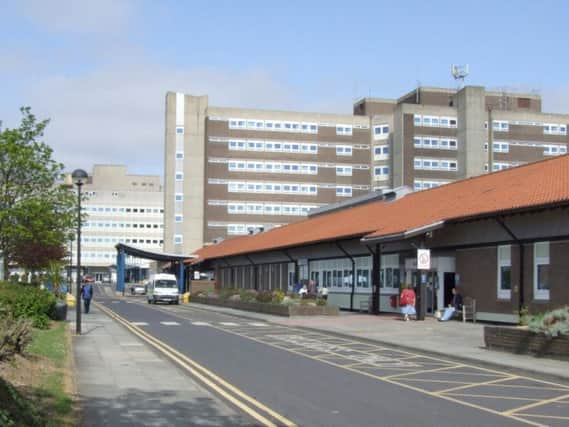Hartlepool's hospital trust in top 10 for detecting small babies in pregnancy


North Tees and Hartlepool NHS Foundation Trust has worked hard to implement the Perinatal GROW protocol which enables the management of Small for Gestational Age (SGA) and Fetal Growth Restriction (FGR) pregnancies.
The Perinatal Institute (PI) provides tools for the assessment of fetal growth and birth weight through its specialist Gestation Related Optimal Weight (GROW) software. Early detection supports early intervention, leading to a reduction in the risk of stillbirths.
Advertisement
Hide AdAdvertisement
Hide AdNationwide 81% of trusts are using the GROW protocol, the trust places in the top 10 for its detection rate which stands at 58.9%, after using the protocol for the last two years.
This work has delivered a 23% reduction in stillbirths nationwide compared to the previous 10-year average and is the equivalent to 860 fewer stillbirths nationally each year.
This local reduction exceeds the Secretary of State’s original target to reduce stillbirths by 2020 – that’s even earlier than expected.
Previously women would have a scan and the baby’s size would be calculated on the basis of the size of the abdomen around the baby.
Advertisement
Hide AdAdvertisement
Hide AdWith the new GROW-chart, BMI, ethnicity and age are taken at the booking in appointment. Where a mother is deemed to be low risk, she will have fundal height measurements throughout her ante-natal visits to estimate the fetal weight.
The expectation is that, once plotted, they will follow a continuous curve. If there is any deviation from the curve, they are sent for a scan for further investigation. For high-risk mothers, they attend serial scans to calculate the baby’s birth weight, increasing the opportunity to detect any abnormalities.
Those women identified at risk of having SGA and FGR pregnancies tend to have at least one risk factor including, smoking, raised BMI, diabetes and increased maternal age.
Involving multiple teams, the trust introduced a midwifery-led growth scan clinic. This provides a continuity of care for women as, following the scan, the midwife is able to liaise directly with the community midwife regarding the results.
Advertisement
Hide AdAdvertisement
Hide AdEveryone involved receives yearly training around the GROW protocol, this training is delivered by specialist midwives.
Stephanie El Malak, head of midwifery at North Tees and Hartlepool NHS Foundation Trust, said: “The teams have worked really hard to implement this latest initiative and make it work not only for themselves, but for the women of North Tees and Hartlepool.
"It’s a fantastic achievement and they should all be very proud – a great example of putting patients first and improving outcomes for all.”
Nicola Threadgold, midwife at North Tees and Hartlepool NHS Foundation Trust, said: “This is a huge achievement for everyone involved – it wouldn’t have been possible without the support of our consultants, our community staff and, of course, all of the midwifery staff here at the trust.
"We are able to offer more support than ever to expectant mums and this protocol allows us to further improve outcomes for our patients.”